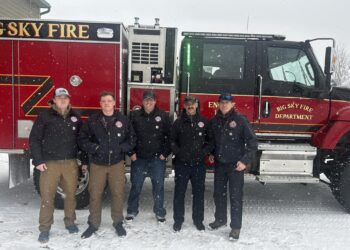By Maren Dunn, D.O. Explorebigsky.com Health Contributor
What’s the latest recommendation for mammograms? My mother had breast cancer at age 45 and I’m concerned for myself and my children.
Great question! Mammography has been a hot topic in medical literature lately. As a result, the recommendations have become less precise. Nevertheless, there is more scientific evidence in favor of breast cancer screening than for any other cancer.
For those who don’t know, a mammogram is an x-ray of the breast tissue. It’s used to screen for breast cancer in men and women. During a mammogram, the breast is compressed between plates to even out and condense the tissue while keeping it still for the x-ray. The goal is to detect abnormalities signifying early signs of breast cancer.
For years the recommendation was annual screening for breast cancer in all women age 40 and older. The controversy now is over when to initiate screening and at what intervals. The American Medical Association and American College of Obstetricians and Gynecologists agree that routine yearly screening should begin at age 40. The American Academy of Family Physicians has endorsed mammography starting at age 40, with routine screening every one to two years based on risk factors. The U.S. Preventive Service Task Force recommends starting routine screening at age 50 with individual assessment of risks for women in their 40s.
A patient’s personal and family medical histories are important when discussing screening between ages 40 – 49. The following are among the indicators of increased risk for breast cancer: You have a first degree relative with breast cancer; you carry the BRCA 1 & 2 gene mutations; you’re over 30 without having been pregnant.
See your medical provider when you reach age 40 to discuss your risks and decide on the screening method best for you. If a family member was diagnosed with breast cancer in their 40s or younger, have the mammogram discussion at least three years earlier than the year of your family member’s diagnosis./
One fact remains the same: mammograms save lives.
Gallatin Family Medical offers reduced cost and free mammogram screening.










